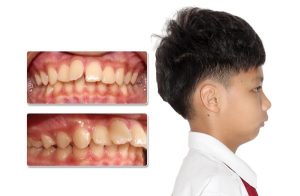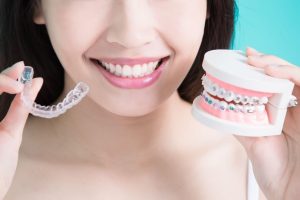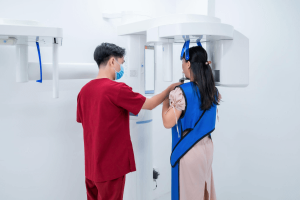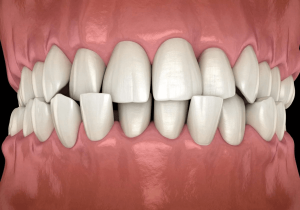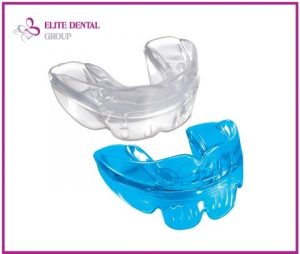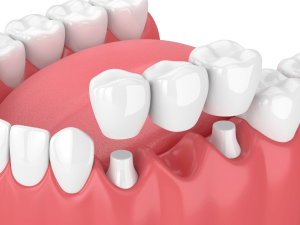Table of content
Recently, Elite Dental has received numerous inquiries from clients regarding the question: Should I get braces? Many opinions on the Internet suggest that braces can be painful, make eating difficult, are costly, and require a significant amount of time. As a result, many clients are looking for additional advice from a specialist.
Respecting these concerns, Elite Dental will provide a more detailed professional explanation to help clients make an informed decision.
1. Factors to Consider When Deciding Whether to Get Braces
1.1 Which cases should get braces?
Here are situations where it is advisable to get braces as soon as possible:
- Protruding Teeth: Upper teeth that stick out too far forward compared to the lower teeth.
- Spacing teeth: When teeth are spaced too far apart and do not fit closely together on the dental arch.
- Underbite teeth: Also known as a “reverse bite,” where the upper jaw is positioned too far back compared to the lower jaw.
- Crooked or Misaligned Teeth: This condition includes teeth that protrude outward, recede inward, are tilted, or overlap each other.
- Teeth malocclusion: Misaligned bite issues such as open bite, deep bite, or crossbite, which can cause facial asymmetry, difficulty chewing, and speech problems.
By using specialized dental appliances (metal braces, ceramic braces, self-ligating braces, clear aligners) to apply corrective forces, braces help straighten misaligned teeth, achieve a proper bite, align the dental arch, enhance facial aesthetics, improve chewing, ensure clear speech, and prevent oral health issues.
1.2 Limitations of braces
Braces are a complex dental procedure that requires a skilled dentist and the correct technique. However, many dental practices now offer braces services widely, often with attractive advertisements and low prices.
You need to be very cautious. If braces are applied incorrectly or by an unreliable practice, you might encounter issues such as: incorrect initial diagnosis (e.g., attempting to use clear aligners in cases where they are unsuitable), unsatisfactory treatment results, malocclusion leading to temporomandibular joint pain, soft tissue damage, exposed tooth roots, or tooth sensitivity.
1.3 Concerns About Braces and Their Impact
When deciding whether to get braces, you may have several other concerns. Elite Dental provides the following answers:
Do braces cause discomfort?
You may feel discomfort and slight discomfort at two times: when you first wear braces and when you change to a new tray. However, this feeling is completely normal and will quickly disappear, so don’t worry too much.
Do braces affect speech?
In the initial days of wearing braces, the sensation of discomfort and obstruction might cause some difficulties in pronouncing words clearly. However, this is usually temporary, and after adjusting to the braces, your speech should return to normal.
Do braces change eating habits?
Braces do not significantly affect your ability to chew food. Particularly with clear aligners, you can remove them for eating, making it easier. However, during the early stages of wearing braces or when changing aligners, to avoid food getting trapped in the appliances, it is advisable to choose softer, more liquid foods and avoid very hot or cold items.
Does wearing braces cause allergies?
In most cases, braces are performed at reputable dental facilities, using tools of clear origin that do not cause allergies.

1.4 Are braces expensive?
The cost of braces is a major concern for many people considering whether to get them. On average, the cost of braces ranges from 50,000,000 to 137,500,000 VND. However, whether braces are expensive or affordable mainly depends on: the dental practice and the method used.
- Dental Practice: You should choose a reputable dental clinic with a skilled and experienced team of dentists.
- Method Used: Currently, the cost of metal braces is the lowest, followed by ceramic braces, with clear aligners being the most expensive.
View more: Overview of Orthodontics Price List at Elite Dental
2. Question: Should I get braces?
Dr. Nguyen Thi Thanh Tung (a specialist with many years of experience in orthodontics at Elite Dental) provides the following advice:
Based on the factors mentioned, if you are experiencing issues with misaligned teeth and jaw structure, it is best to get braces as soon as possible.
So, should you get braces if your teeth are otherwise normal? It is advisable to visit a reputable dental clinic for a thorough examination. Many cases may appear normal from an external perspective, but only a skilled orthodontist can identify any underlying misalignments in your teeth and jaw. They can then provide recommendations on whether braces are necessary and which method would be most suitable.
If you have a history of metal allergies, high aesthetic demands, or a busy schedule that limits your ability to visit the dentist regularly, you should discuss with your dentist whether clear aligners would be a better option. Clear aligners can address the inconveniences related to eating and daily activities while still achieving the desired results.
Another important point to consider is that for comprehensive results in bite alignment, chewing health, and facial aesthetics—including your smile and overall appearance—the key factors are choosing a highly skilled and dedicated orthodontist and ensuring the use of advanced equipment and modern technology.

3. So if we need braces, when is the ideal time to get Braces?
To effectively address dental issues with a comprehensive improvement in both aesthetics and function, the American Dental Association (ADA) recommends that the ideal age for getting braces is between 6 and 12 years old. First, this is because the jawbone is still developing, making it easier to move and align the jaw to achieve a proper bite. Second, this is also the stage when children are losing their primary teeth, allowing for better monitoring of the eruption sequence and timely intervention to guide teeth into the correct positions.
Should adults get braces?
Braces offer significant benefits for both aesthetics and function, so many adults are interested in this method. However, they may wonder if braces are suitable for adults.
In reality, there is no age limit for orthodontic treatment; adults can undergo braces treatment in their 30s, 40s, or even 50s. With careful examination, X-rays, and a precise treatment plan, adult orthodontic treatment, even in older age, can be effectively managed and achieve the desired results. However, there are a few considerations:
- Essential Condition: The necessary condition for adults to get braces is that their teeth must remain healthy and strong.
- Technical Demands: Orthodontic treatment for adults requires more advanced techniques and a longer treatment duration because the teeth and bones are fully developed and stable.
- Special Considerations for Older Adults: For older adults, a thorough examination by the dentist is crucial. Braces should not be applied if there are signs of aging such as swollen gums, tooth sensitivity, gum inflammation, weakened tooth support, or the presence of many dental prosthetics or crowns.
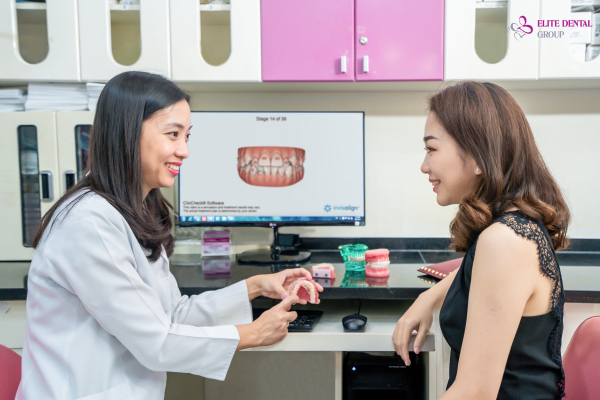
View more: What is a Receding Chin? Key signs, causes, and how to address it
4. What is the Most Important Aspect of Getting Braces?
The success of orthodontic treatment not only depends on using the correct methods but also largely on the diagnostic process, treatment planning, monitoring, and adjustments made by the orthodontist. Therefore, choosing a specialized orthodontist is the KEY to successful braces treatment.
Many clients have chosen Elite Dental to begin their journey with braces and regain their confident smiles, thanks to the following values:
- Experienced Team: Our team of doctors has extensive experience, with many years of training abroad and over 10 years of practice in both traditional braces and clear aligners. They frequently participate in advanced training programs both domestically and internationally to stay updated with the latest orthodontic techniques.
- Diverse Solutions: We offer a range of orthodontic options (metal braces, clear aligners) tailored to the needs and conditions of various clients.
- Advanced Equipment: We are equipped with modern technology such as the Trios 3D Scanner for accurate digital impressions, Sirona X-ray machines, and sterilization facilities (ultrasonic cleaners, Autoclave steam sterilizers), ensuring effective and safe treatment.
- Modern Facilities: Our branches are equipped with dedicated floors for orthodontic treatment.
- Affordable Pricing: We offer reasonable fees and installment plans for invoices over 20 million VND with 0% interest. View the conditions and procedures for installment payments HERE.
- Comprehensive Case Studies: Our doctors are willing to show you a “portfolio” of treated cases at Elite, covering all types of misalignments, and explaining the treatment details to help you make an informed decision about whether to get braces. Thousands of successful braces cases at Elite meet 6 criteria:
- Correct bite, with the upper jaw slightly covering the lower jaw by 1–2 mm.
- The midline of the upper jaw aligns with the facial midline.
- Teeth are properly aligned and interlocking.
- Good chewing and speaking abilities.
- Aesthetic appearance from both profile and frontal views.
- Durable and stable results.
We invite you to review successful cases of braces for children and adults at Elite:
Case 1: Mai Khanh, a young patient, came to Elite Dental to address an impacted canine tooth that was preventing her primary teeth from becoming loose. The treatment involved both extracting the impacted canine and aligning the dental midline, ultimately achieving a beautiful, bright smile.
Case 2: B.N. underwent Invisalign clear aligner treatment at Elite Dental to correct the sinking and slight receding of the upper four front teeth and minor receding of the lower four front teeth, aiming to reduce the overbite.
Case 3: After orthodontic treatment with clear aligners, Ms. T.L has completely resolved her deep bite issue, corrected her gummy smile, and regained a bright and confident smile.
Case 4: Tuan Anh is delighted with the results of his orthodontic treatment, which effectively addressed his open bite and protruding teeth. Through this, he also advises young people to pay attention to their oral health and to consider getting braces as soon as possible if they encounter any issues.
Case 5: Mr. T.D (1995) is one of those who needed orthodontic treatment to correct his bite misalignment and crowded teeth, and now he confidently showcases a radiant smile.

We hope these shared experiences help you feel more confident in deciding whether to get braces. Whether it’s for children or adults, it’s BEST to visit a reputable dental clinic with skilled doctors to receive a thorough examination and a suitable treatment plan. Contact Elite Dental at Hotline 0902 661 100 if you have any other questions!
Related posts: > Safe and effective ways to speed up Orthodontic Treatment > Detailed phases of Orthodontic Treatment > Discover Invisalign Orthodontics


